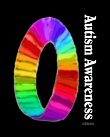Friday August 10, 2007
|
Zane needs to understand what is going to happen. He gets very anxious if he doesn’t understand what is going on. A visual schedule is crucial; it helps with this anxiety and helps his behavior. If he doesn’t know what is expected of him, he will start making things up and is more prone to escaping.
Zane needs concrete, specific instructions. Instead of saying “time to line up”, tell him specifically where to stand. A physical marker that he stands on (graphic of footprints, even a piece of colored tape will help) helps him understand. He might also need a prompt to ‘stay sitting’. He will sit when asked, but he might not infer that he is supposed to continue to sit throughout an activity unless it is said explicitly. Instead of saying “hold your horses”, say “wait”. Phrases like ‘you have ants in your pants’ might prompt him to try and find them. Colloquialisms are lost on him. Zane’s biggest strength is pattern-recognition. His most effective way to learn is seeing patterns in what he’s learning. This also means that he may see unintended patterns. An example of an unintended pattern is in asking him to match things, and him matching something else in the picture (e.g. you expect him to match the flower colors, but he instead matches the similar flower pots by shape; you have a set of actions that follow a song, and he includes inadvertent movements, like head scratching, as part of that set).
Zane has intense drive for completion/closure. If there is a project in the classroom that isn’t going to be completed at a particular sitting, then he needs clear instructions like “finish coloring this circle, then we will put it away”. Give him a clear end point. He might not be happy if he sees things left undone, but he can cope with it better if there is a clear end point for that particular time. He will also try to close doors/drawers if they are left open. If he has hit his limit and can’t seem to figure out how to finish something, he might need help to get to that endpoint. For instance, if he is to write something and he has hit his threshold, you might need to write a dotted line for him to trace to finish it. If he can’t finish it, even if it because he is worn out or can’t focus, he is likely to meltdown.
When Zane gets overwhelmed: He doesn’t tend to lash out, he tends to ‘check out’ instead. He goes inward and doesn’t respond. He gets really quiet. He can usually be pulled back into the world with some sensory input. If you see him crashing into people (doesn’t really happen very often any more, but it might) he isn’t being aggressive, he is seeking input and doing it in the only way he knows how. He can’t verbally tell you he needs it, but this is a sign he has gone well beyond his coping ability.
Zane is “deep pressure seeking/light touch avoiding” To help him focus, he sometimes needs sensory input. The most effective things for him are deep pressure activities that help his brain get back in touch with his body.
Some things that help him:
Zane has motor planning issues. On a basic level, bad coordination on things he doesn’t do often or complicated activities. He might be able to imitate somebody (he usually tries), but when it comes to motor planning, he often has to be shown by doing it, with a teacher/helper physically moving his limbs, etc, the way they are supposed to go. Often it just takes one time of giving him enough of an idea to figure it out from there, but there are times he just won’t get it any other way. He has difficulty with things that require finger dexterity/fine motor, like buttons/snaps, lacing, sorting tiny things (his brain knows where they go, but his fingers might not do well at actually moving the things) or putting together puzzles with small pieces. (can do 100+ puzzles since he was 2, but only if the pieces are big enough)
Two relevant specific things he has done a lot of work on:
Zane has a hyposensitive mouth. He might ask for hot sauce to put on his food, or overfill his mouth (he usually doesn’t do it to the point of choking on the food any more, but considering this used to be a pretty big issue, I figured I should mention it). He also might mumble, sound like he is talking with a mouthful of marbles or generally have really poor enunciation and need to be prompted to ‘use a big voice’ or ‘talk louder/slower’ to be understood. He also does a lot better with a straw than he does just drinking out of a glass.
Zane is not potty trained yet. We are going to need to discuss how to handle this. We are working very hard on this issue, but it hasn’t clicked yet. Most of his pants don’t have fasteners to help with getting them on and off, but most of his jeans and some of the other nice pants have buttons he may need help with. He can undress himself, and if it is just a wet pull-up, he can put a new one on. He will have to either lean against something or sit on the ground to get it back on (motor planning issue again), and most of the time he gets it on the ‘right way’, but you probably want to check to prevent problems later.
Zane has a sense of humor. The most common way he demonstrates it is to purposefully give a wrong answer and then watch for your reaction out of the corner of his eye, usually with a sly smile on his face. Watch for this when you are trying to test him.
Zane’s Strengths
He constantly surprises us with his abilities. He works up (or down) to expectations, so we often push him to try things outside his comfort zone. You might never encounter some of the things I addressed, but I wanted you to be aware of the possibilities so it doesn’t take you by surprise. He isn’t totally unlike a typical kid, but a lot of his experience in the world is just more extreme than a more typical experience.
He is probably going to seem much more severely affected by the ASD symptoms the first few days, until he figures out the routines and expectations. Once he understands and can predict what his day is like, he will come out of his shell and you will see a lot more participation and enthusiasm. He really is a joy to work with, but it can take a bit for his true personality to emerge.
I am Jennifer, a SAHM, and my husband, Zach, is often home also (he teaches several of his courses online, so his on-campus requirements aren’t what a typical instructor has). We are very willing to help in any way we can, and can be at *school name* in short order if you need us there to help navigate a situation. I know that this in not the ideal situation, especially until the IEP is in place, but I have faith that it will work and am willing to anything to help make this process as smooth as possible. Our phone number is ***-***-**** if you would like to speak to us. |
I hope I didn’t inadvertently say anything stupid that is going to hurt his IEP process, but I am not going to lie about his abilities (like gloss over how much he does know in an effort to ensure he isn’t kicked out of services.) I think he has enough other issues that he shouldn’t get kicked out of services anyway, but it is always a fear of parents who’s kids are hyperlexic or, at least, without severe cognition deficits.


I’m so glad it went well. You did a great job with that list. At the very least they know they are dealing with someone who is very involved and knows what she is talking about. His teacher might be overwhelmed at first but this is really good info to have. I wish I’d been half as prepared when D started kindy.
I’m sure things will come together so you can para for Zane. **fingers crossed**
You did a great job of providing the teacher with information that is needed. Just a note…I’m a music teacher and I know that often the “support” teachers don’t get all this information from the classroom teacher. You might make an effort to make sure that the P.E., music, etc. teachers also get any information about Zane that would help them. I think Zane will do wonderfully in school with your help.
I think that you went to the meeting really prepared and they are probably really glad to deal with a parent that knows so much about their child.